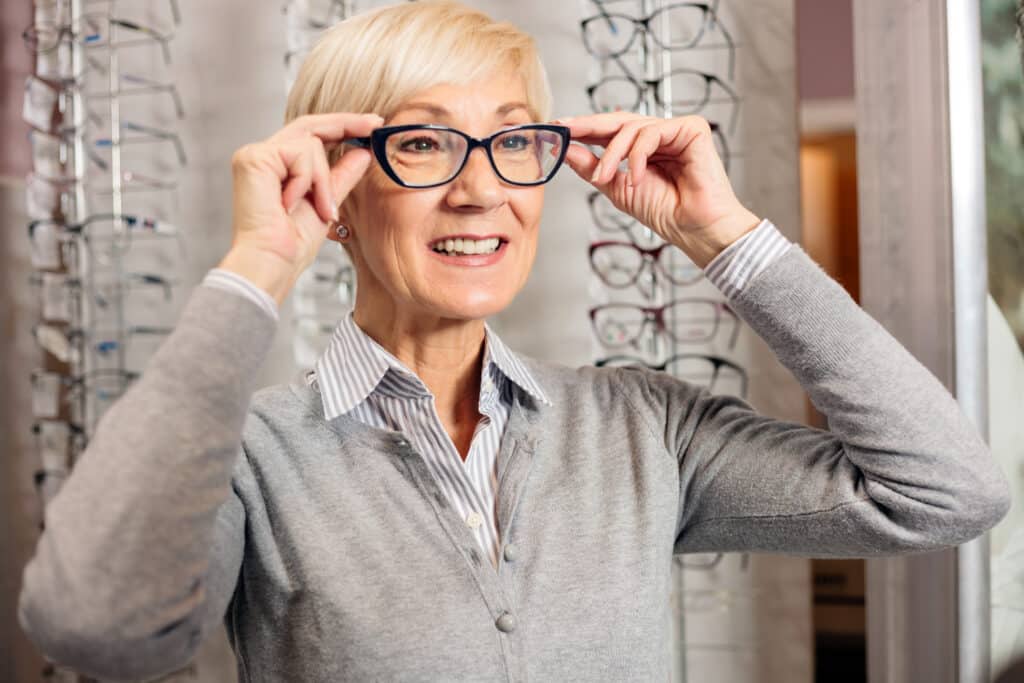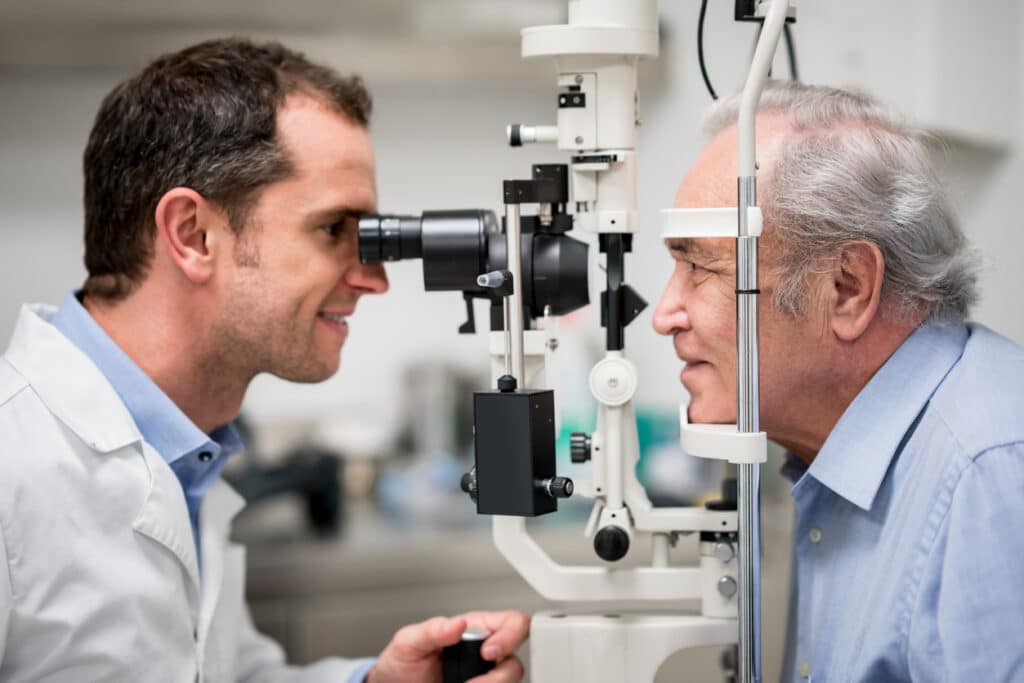
Age-related macular degeneration, or AMD, is the most common cause of irreversible vision loss in older adults. The disease affects nearly 20 million Americans. The macula is the part of the retina which controls central vision. People with macular degeneration lose the ability to see things in front of them but will retain their peripheral, or side, vision. AMD can develop in one or both eyes.
Risk Factors
The main risk factor for macular degeneration is age. Approximately 30 percent of people over age 75 will develop the disease. Other risk factors include genetics or family history, smoking, high blood pressure, obesity, and being Caucasian. Some of these risk factors are beyond our control. However, certain lifestyle changes may reduce the risk. People can stop smoking, exercise regularly, and maintain a healthy weight. Eating fruits and vegetables that are high in vitamins C and E and the antioxidant beta-carotene may reduce the risk.
Two Types of AMD
There are two types of macular degeneration – wet and dry. The wet form is less common but more severe. Abnormal blood vessels grow beneath the retina and leak fluid and blood. This creates a large blind spot in the center of the field of vision. The dry form of the disease affects about 80 percent of those with AMD. Light sensitive cells in the macula break down over time and tiny clumps of protein form. Loss of vision with the dry form is slow and gradual.
Symptoms of AMD
The most common symptoms include blurry vision that can make it difficult to read, drive, or recognize familiar faces. Straight lines may appear wavy or distorted, and a dark area or blind spot may appear in the center of the visual field. A doctor who examines the eye may note the presence of drusen, or tiny yellow protein deposits under the retina.
Importance of Regular Eye Exams

The American Academy of Ophthalmology recommends that adults over age 65 have a yearly eye exam. This should include dilating the eyes. Exams can help spot many eye problems in the early stages. Older adults that experience any changes in their vision should schedule an eye appointment immediately.
There are some treatments that can slow the progression of macular degeneration, but there is no cure. Treatments vary depending on the type of the disease. Damage caused by macular degeneration is not reversible.
Renaissance Villages Low Vision Program
Renaissance Villages is focused on the health and wellness of our residents. Let Me See, our low vision program, is designed to improve sight-related activities and enhance quality of life for our residents. Low vision accommodations focus on individuals struggling with the following:
· Decreased visual acuity
· Contrast sensitivity
· Perceptual impairments
· Vestibular complications
Contact us today for more information about our residential options.

